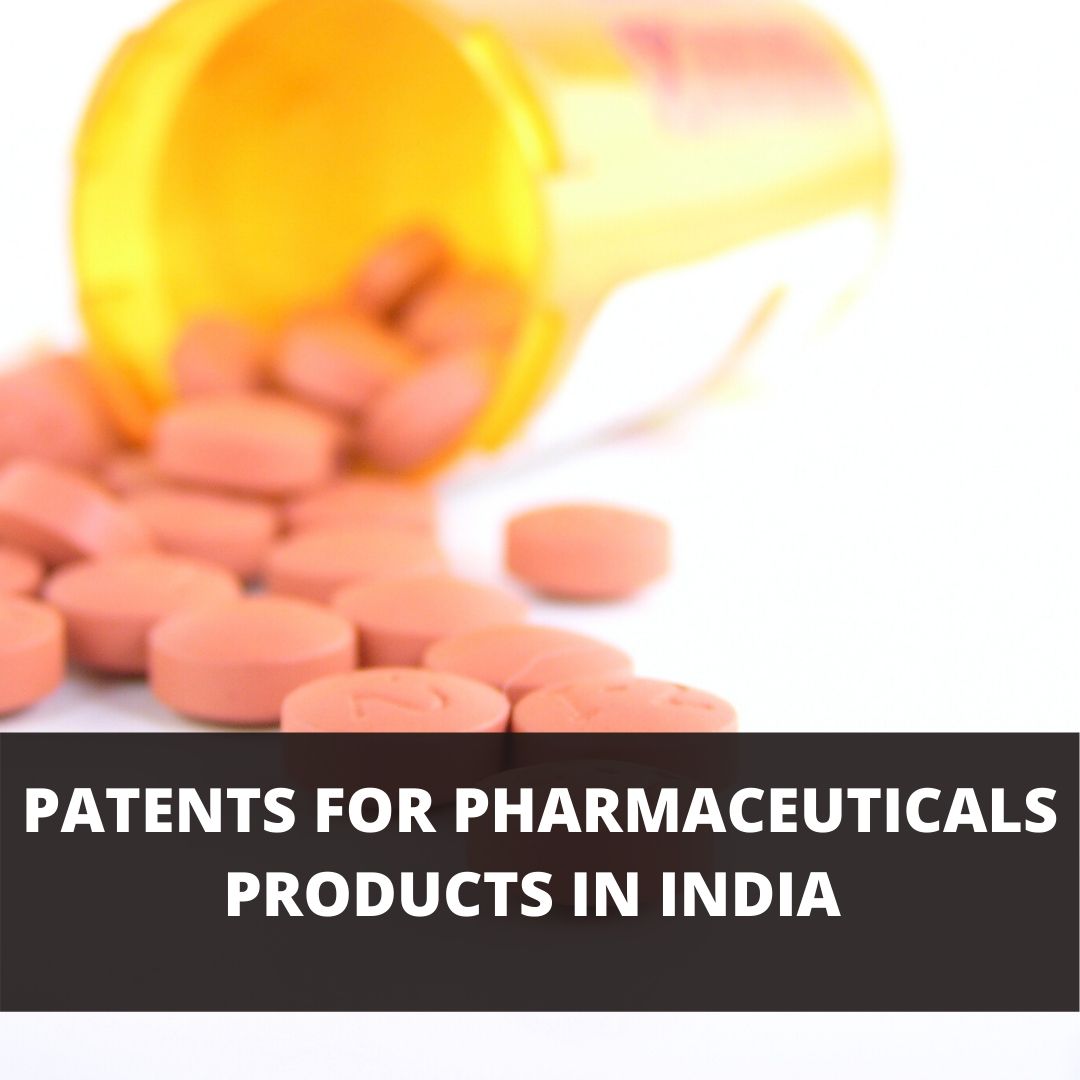A patent is a legal right given by the government to the owner of an invention that prevents others from making, using, importing, or selling the invention without his consent. Patent’s rights are territorial, which means you can protect your invention in the geography where you filed the patent application. You can obtain international patent protection by directly filing a patent application in the country where you wish to get a patent. There are three types of patents. First is the utility patent. It is a patent that covers anyone who invents a new and useful process, the machine, article of manufacture, or a composition of matter. Second is the design patent. It includes an original and ornamental design for a manufactured product. The third is the plant patent. It is a patent related to plant which is capable of reproduction.
Pharmaceuticals products commonly known as medicines or drugs, and they are a fundamental component of modern and traditional medicine. It is necessary that such products are safe, effective, and of good quality, and are prescribed and used rationally. It is a drug used to diagnose, cure, treat, or prevent disease. Drug therapy or pharmacotherapy is an essential part of the medical field. It relies on the science of pharmacology for continual advancement and on pharmacy for appropriate management. Pharmaceuticals products refer to a drug product in finished form for human or animal use. It means all products being researched, tested, developed, manufactured, or distributed by the company or any of its subsidiaries.

Pharmaceuticals industry develops, produces, and markets drugs. Its use as a medication, and this industry deals in generic, brand medications and medical devices. They are subject to a variety of laws and regulations concerning patenting, testing, and ensuring the safety and efficacy and marketing of drugs. The pharmaceutical industry divided into four categories. These categories are Brand Developers, Generic Competition, Research Development, and Marketing. It is a vast industry and here medicines manufactured, new molecules launched after R & D done. Patents play a vital role in the pharmaceutical industry. The Patents are the legal protection for inventions, involving new medicines discovered by research-based pharmaceuticals companies, and, in return for such protection, a patent-holder discloses to the world patented research and science underlying the invention.
A patent is a type of intellectual property. A patent is a monopoly right grant to the inventor who has invented a new product or process through his intellectual efforts which, capable of industrial application. In the developing economy, patent protection for pharmaceuticals products motivates the development of new medicines for diseases that affect developing countries by providing protection for the investments that need to be made by pharmaceutical companies. Pharmaceutical products take a long period of time to develop, and after that, they enter into the market for human use. 10-15 years minimum needed to develop a new dosage form that is clinically proved safe and efficacy from the earliest stages of compound discovery through approval. As an outcome, significant portions of the patent term for a new drug is lost before a product enters the market.
India’s pharmaceutical industry is the world’s third-largest in terms of volume. India is one of the fastest-growing pharmaceuticals markets in the world and has established itself as a global manufacturing and research hub. A large raw material base and the availability of a skilled workforce gives the industry a competitive advantage. Today, India among the top emerging markets in the global pharmaceutical scene. The sector is highly knowledge-based, and its steady growth is positively affecting and giving an advantage to the Indian economy. The organized nature of the Indian pharmaceutical industry is attracting companies, and they are finding it viable to increase their operations in the country.
The Indian pharmaceutical industry is a highly-technology-based industry that has witnessed consistent growth in several years. The industry players comprise many privately-owned Indian companies that have captured a substantial share in the domestic market of pharmaceuticals. It is because of favorable government policies and limited competition from overseas. The liberalization of the Indian economy has been revolutionizing Indian industries because they began to emerge from domestic markets and to prepare themselves for international competition. The Indian pharma industry is on a good growth path and the high burden of disease, good economic growth leads to improvements in healthcare infrastructure, higher disposable income and improved healthcare financing or driving growth in domestic growth. The small and medium enterprises expected to play a significant role in the growth story of the country’s pharma sector as they contribute 35 to 40 percent to the industry in terms of production.
India has opened the market in global trade. Therefore, the Indian pharmaceutical industry needs to revisit its long-term strategies and business models. The protection of intellectual property is an important factor that is increasing in significance due to the growing recognition of the need to ensure protection of valuable investments in research and development (R &D). The Indian government is moving towards establishing a patent regime that is conducive to technological advances and is keeping with its global commitments.

